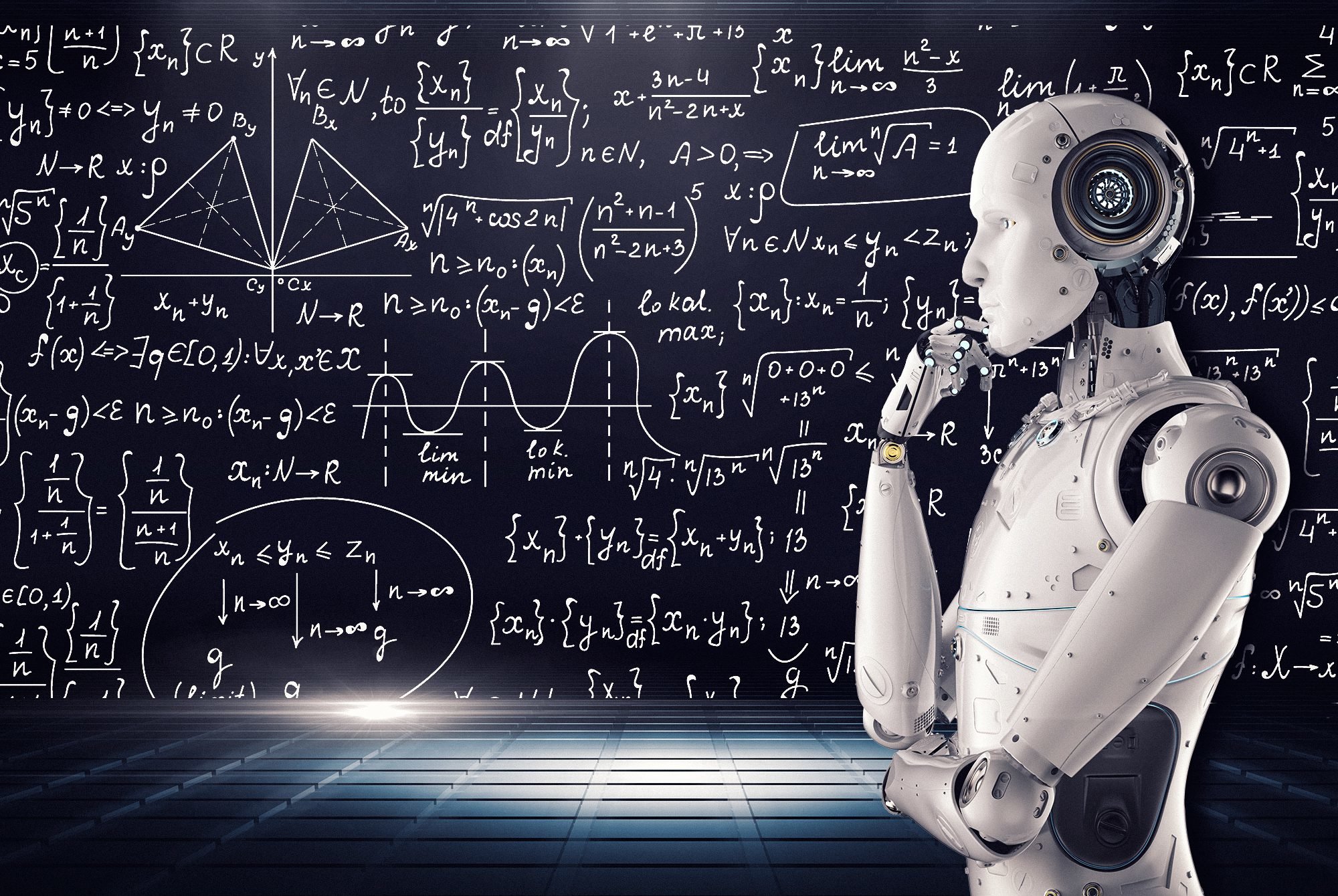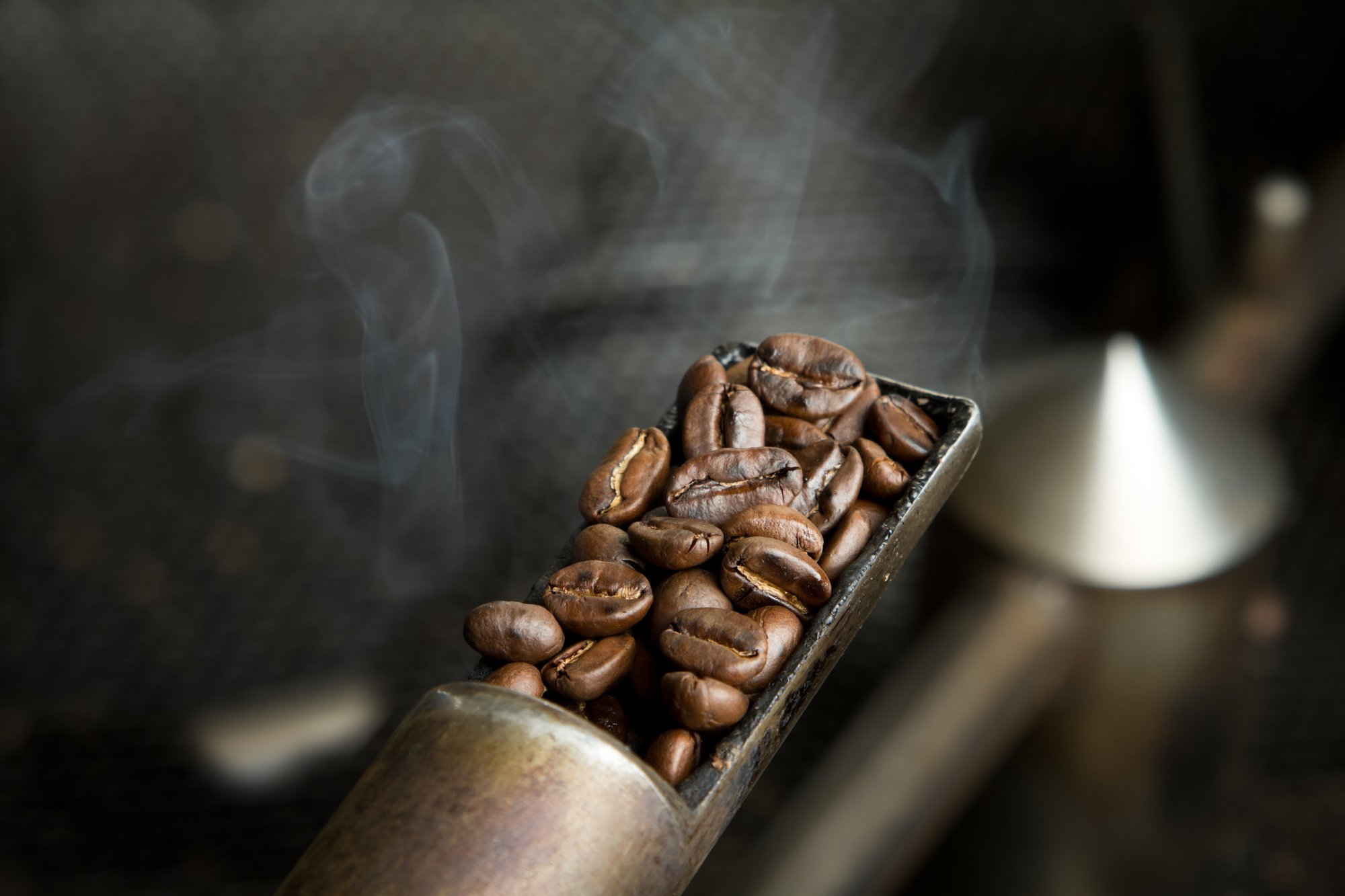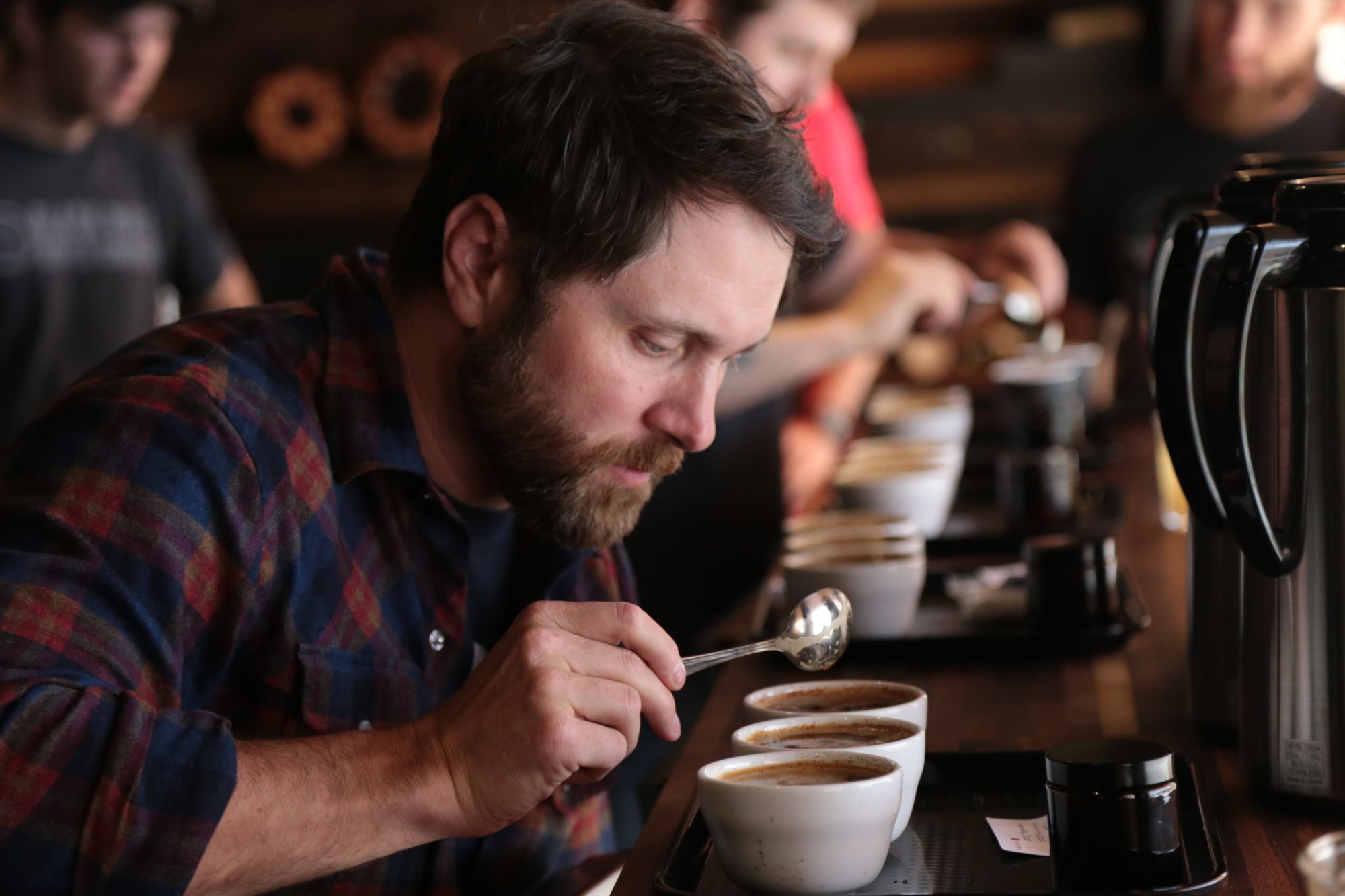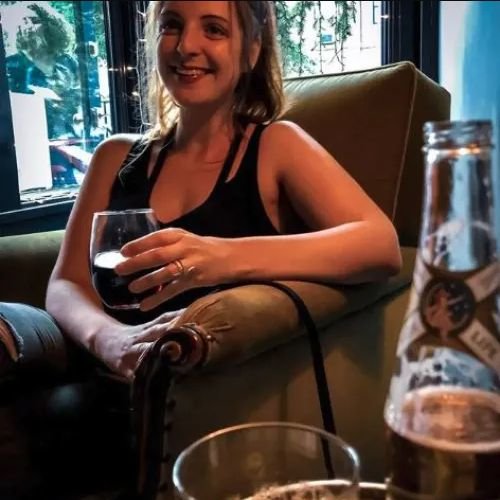The Value of Coffee May Soon Be Determined By … Artificial Intelligence?

Artificial intelligence and machine learning are increasingly big news. Image by www.vpnsrus.com via Wikimedia Commons.
Artificial intelligence has come a long way from solving mathematical equations and proving scientific phenomena. Today, AI runs self-driving automobiles and provides accurate predictive technology in both what we watch (as Netflix does) and what we listen to. AI even offers seamless everyday help: You need only utter two famous words — “Hey, Alexa.”
It’s easy to see how drastically our lives would change without the use of AI. Now, thanks to the evolution of robotics, we might never drink a bad cup of coffee again.
Colombian-Israeli tech company Demetria has created the coffee industry’s first-ever data platform, designed to efficiently detect the quality of coffee beans. By using its exclusive hand-held scanner, paired with the dedicated app accessible via any smartphone, the technology can classify coffee before it’s roasted, a revolutionary concept that is predicted to elevate the coffee trade as we know it.

Traditionally, professionals use a tasting technique known as cupping to evaluate the quality of a bean. The procedure is relatively complex and can be a bit time-consuming, but it is considered the industry standard for scoring coffee beans and determining their quality with an actual numerical score.
First, cuppers will evaluate the bean by placing its grounds into a small cup from which they can breathe in the bean’s fragrance. Next, boiling water is poured over the coffee for approximately four minutes, allowing the grounds to steep. During this part of the process, the cuppers will begin to take notes on the aroma; fruity, nutty, and caramelized are a few of the most common scents a typical brew will yield.
After enough time has passed, the real fun begins — tasting. Once they’ve removed the grounds, the cuppers use specialized spoons to slurp the coffee, making sure to circulate the liquid around their mouths for a few seconds — a technique similar to that of wine sommeliers. This helps the cuppers determine flavors, body, and acidity. Finally, the cuppers either swallow the coffee or spit it out, and then evaluate the coffee’s aftertaste.
Once the process is complete, the cupper creates a detailed profile, recounting the brew’s body, acidity, and overall aromatic makeup. This information is used to describe the roast once it’s ready for marketing, packaging, and distribution.

Today, modern technology such as Demetria’s could eliminate this age-old method with a simple scan. But if its automation is so advanced, why would Demetria focus on the coffee industry? For the company’s founders, the answer is simple: Coffee is the most popular beverage in the world, with more than 2 billion cups consumed daily.
Demetria’s goal is to aid the industry by helping farmers understand their crops’ quality, providing cooperatives with accurate assessments of the quality of the coffee they are purchasing, informing traders when their ideal coffee profiles have been uncovered, and, lastly, providing roasters with the tools needed to meet consumer demand. Demetria’s technology will also affect pricing. As Bloomberg reported, Demetria is currently working on a series of apps that will help farmers better price their beans, allowing for higher profit margins.
Demetria’s new technology is expected to be a radical improvement for the industry, allowing for quality control, crop consistency, and more.
Move over, Alexa — we’ve found our new favorite AI.
Read Next: Kaffeost: Reindeer Cheese and the Saami Coffee Ritual

BRCC and Bad Moon Print Press team up for an exclusive, limited-edition T-shirt design!
BRCC partners with Team Room Design for an exclusive T-shirt release!
Thirty Seconds Out has partnered with BRCC for an exclusive shirt design invoking the God of Winter.
Lucas O'Hara of Grizzly Forge has teamed up with BRCC for a badass, exclusive Shirt Club T-shirt design featuring his most popular knife and tiomahawk.
Coffee or Die sits down with one of the graphic designers behind Black Rifle Coffee's signature look and vibe.
Biden will award the Medal of Honor to a Vietnam War Army helicopter pilot who risked his life to save a reconnaissance team from almost certain death.
Ever wonder how much Jack Mandaville would f*ck sh*t up if he went back in time? The American Revolution didn't even see him coming.
A nearly 200-year-old West Point time capsule that at first appeared to yield little more than dust contains hidden treasure, the US Military Academy said.












